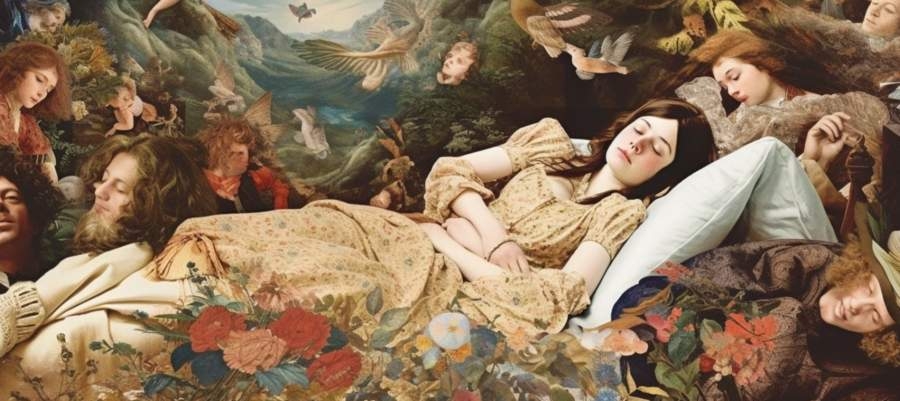The Science Behind Beauty Sleep

Awakening the Sleepy GeniusSleep is often portrayed as the mystical fountain of youth—something akin to that elusive fountain that your adventurous uncle takes a cruise to find but conveniently never returns from. Turns out, it might actually come with a science-backed prescription. The notion of beauty sleep isn’t just a whimsical concept invented by sleep-deprived fairy tale characters; it has some serious scientific merit. Not getting enough shut-eye can turn even the most radiant faces into a canvas best described as “before” in a skincare commercial.Why Counting Sheep Is So Last CenturyForget the woolly critters! Modern sleep science suggests a variety of methods to help you drift into dreamland faster than you can say “Bob’s your uncle.” From sleep hygiene practices to relaxation techniques, there’s a whole buffet of options available. Want to make your bedroom a sanctuary? Declutter it, or perhaps even hide the laundry that has been living on your chair for an embarrassing duration of time. Your bed might just transform into the calming oasis you’ve always dreamed of.- Maintain a consistent sleep schedule—because who needs spontaneity when you can have a predictable bedtime?
- Limit screen time before bed, unless you’re watching cat videos, which are scientifically proven to be relaxing.
- Create a relaxing environment. Remember, your bedroom should feel like a blissful retreat, not a scene from a horror movie.
The Appearance of Sleep DeprivationHave you ever noticed how your face seems to change when you’ve skimped on sleep? That charming glow can quickly turn into a dull complexion resembling a piece of toast left too long in the toaster. The effects of poor sleep extend beyond mere aesthetics—your skin can produce excess oil, dark circles may emerge like uninvited guests, and your complexion can become as uneven as a movie plot twist no one saw coming.In a scientific sense, sleep deprivation affects cortisol levels, that notorious stress hormone. When cortisol levels rise, the body’s natural balance is thrown off, leading to inflammation and reduced healing capabilities. Think of it as your skin hosting a party and forgetting to invite the essential nutrients. As a result, the appearance of fine lines and wrinkles can become far more prominent, leaving you wondering if you somehow stumbled into a daytime soap opera.Skin: The Ultimate Multi-taskerYour skin is like that overachieving friend who juggles multiple jobs while still managing to look fabulous. While you’re snoring away, your skin takes on various vital tasks to maintain its health. During deep sleep, cellular repair goes into full swing, promoting collagen production and skin regeneration. This is the time when your skin can effectively fight off blemishes and signs of aging.What’s more, sleep also helps with hydration and blood circulation. When you’re in dreamland, blood flow increases, delivering essential nutrients to your skin. It’s like a VIP delivery service that only operates after hours. If you think about it, you’re practically investing in your skin by simply snoozing—kind of like paying into a beauty savings account. Beauty Sleep: A Matter of TimingTiming, as they say, is everything. Research suggests that the ideal window for beauty sleep is between 10 p.m. and 2 a.m. During this time, your body works the hardest to repair itself. It’s your skin’s equivalent of all-you-can-eat buffet—maximum nutrients, minimum effort. If you hit the sack late, like, say, after binge-watching your favorite series, you might be robbing your skin of its beauty recuperation time.So, if you genuinely aspire to look picture-perfect, aim for an early bedtime. It may take some adjustment, but when your skin starts glowing like the sun at dawn, the effort will be worth it. Don’t Sleep on the Science!As enlightening as it is to know that beauty sleep isn’t just folklore, it’s clear that a solid night’s rest plays a vital role in maintaining your skin’s health and appearance. So, while you may have once thought of sleep as the “lazy option,” now you know it’s merely a strategic decision to ensure that you look fab—without the help of filters or an army of beauty products. Now, perhaps it’s time to cozy up with your favorite pillow and dive into the wonderful world of dreams. After all, who wouldn’t want to be the best version of themselves while snoozing? Sweet dreams await!
|
|







